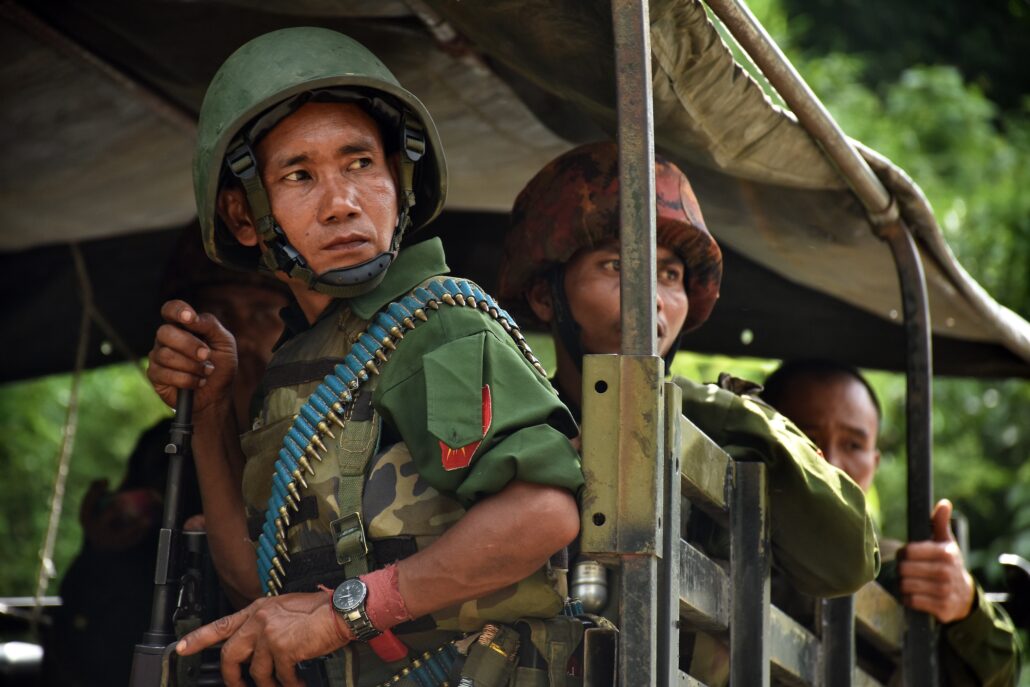
A shocking report has revealed that the Indian government-owned companies and private firms have supplied Rs 421 crore ($51 million) worth of arms, dual-use items, and raw materials to the military junta in Myanmar since generals staged their coup in February 2021.
The report released by the UN-appointed independent expert monitoring and investigating human rights abuses in the country states that some UN Member States are enabling this trade through a combination of outright complicity, lax enforcement of existing bans, and easily circumvented sanctions, according to a news release from the UN rights office OHCHR.
Tom Andrews, the country’s UN Special Rapporteur on Human Rights, claimed that the junta and government-approved arms dealers had brought in $1 billion (8256 INR) worth of weapons, supplies, and equipment from Russia, China, Singapore, Thailand, and India.
Among the suppliers in India were state-owned entities such as Bharat Dynamics, Bharat Electronics and Yantra India and private companies such as Sandeep Metalcraft and Larsen & Toubro. “Despite overwhelming evidence of the Myanmar military’s atrocity crimes against the people of Myanmar, the generals continue to have access to advanced weapons systems, spare parts for fighter jets, raw materials and manufacturing equipment for domestic weapons production,” said Andrews.
“Those providing these weapons are able to avoid sanctions by using front companies and creating new ones while counting on lax enforcement. The good news is that we now know who is supplying these arms and the jurisdictions in which they operate. Member States now need to step up and stop the flow of these arms,” the expert said.
While calling for a complete ban on the sale or transfer of weapons to the Myanmar military, Andrews pleaded for governments to enforce existing bans while coordinating sanctions on arms dealers and foreign currency sources.
The UN Human Rights Council-appointed expert’s paper, The Billion Dollar Death Trade: International Arms Networks that Enable Human Rights Violations in Myanmar is the most detailed study on post-coup arms transfers to the military to date, said OHCHR.
Accompanied by a detailed infographic, it identifies the major networks and companies involved in these transactions, known values of the transfers, and jurisdictions in which the networks operate, namely Russia, China, Singapore, Thailand, and India.
“Russia and China continue to be the main suppliers of advanced weapons systems to the Myanmar military, accounting for over $400 million and $260 million respectively since the coup, with much of the trade originating from state-owned entities”, Andrews said.
“However, arms dealers operating out of Singapore are critical to the continued operation of the Myanmar military’s deadly weapons factories (commonly referred to as KaPaSa).
The report reveals that $254 million of supplies have been shipped from dozens of entities in Singapore to the Myanmar military from February 2021 to December 2022. Singaporean banks have been used extensively by arms dealers.
Andrews recalled that the Government of Singapore has stated that its policy is to, “prohibit the transfer of arms to Myanmar” and that it has decided “not to authorise the transfer of dual-use items which have been assessed to have potential military application to Myanmar.”
“I implore leaders of Singapore to seize the information within this report and enforce its policies to the maximum extent possible,” the Special Rapporteur said.
The report also documents $28 million in arms transfers from Thai-based entities to the Myanmar military since the coup. India-based entities have supplied $51 million worth of arms and related materials to the military since February 2021.
On its part, India told the UN rapporteur that the arms supplied to Myanmar were part of commitments made to the civilian government before the coup and were exported in light of New Delhi’s own domestic security concerns.
“We consider what is in the interest of the people of Myanmar,” Indian representatives told Andrews, according to the report.




